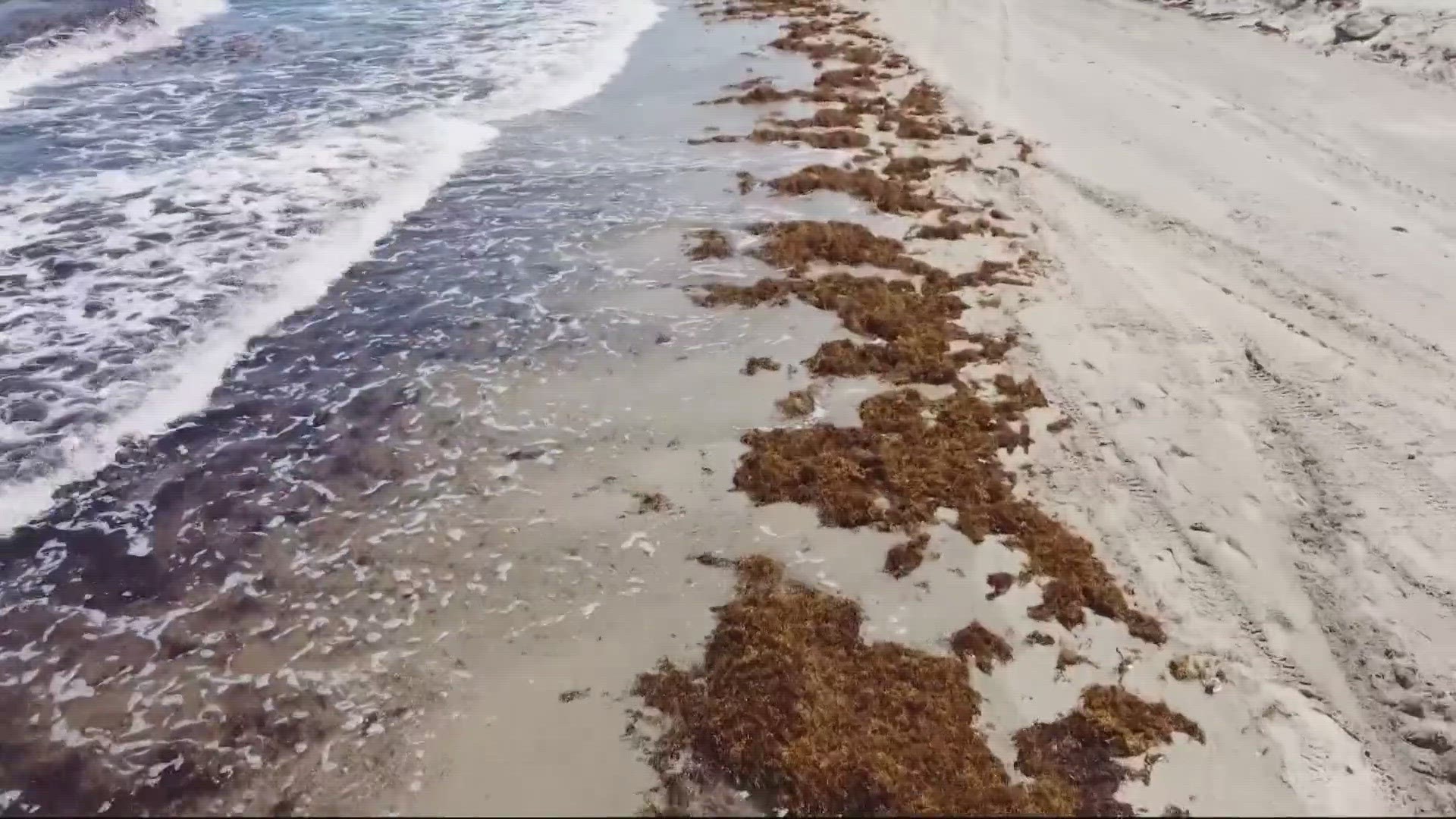JACKSONVILLE, Fla. — If you notice a foul smell in the air near the beach it’s probably from a brown seaweed substance called Sargassum.
Scientists say there is more than usual this year and it peaks during June and July.
Anthony Ouellette, a professor at Jacksonville University, said people should avoid touching it in the water and on shore.
“So, your average person going out I wouldn’t worry about it so much. If you start seeing some rashes if you start seeing blisters. Blisters would be another instance where I would go seek medical attention tell them exactly what you were doing and what your concern is," Ouellette said.
Researchers at Florida Atlantic University did a study that found deadly bacteria in Sargassum, including flesh-eating bacteria.
“Seeing this one picture where it's almost like the highlands of Scotland it looks like actual bushes and plants, I haven’t seen this before," Ouellette said.
The study also found the bacteria stuck to plastic.
First Coast News recently found plastic jars, water bottles and other items wrapped in Sargassum on the beach in St Augustine.
“I mean if there’s a lot of bacteria in that it could certainly pose a problem,” Ouellette said.
He said people with liver and kidney diseases as well as people with open wounds would be at risk.
Ouellette added it's important for everyone to educate themselves as we see more Sargassum.
“A little bit of Sargassum doesn’t concern me at all. Massive amounts of Sargassum, if it does get to be that, is a concern. I tend to think that people wouldn’t start just going to large swaths of Sargassum and start digging in it but of course there are probably some people that are that interested,” Ouellette.
Ouellette said if you touch Sargassum and start getting a red rash you may have come in contact with the flesh-eating bacteria and you should go to the doctor.

